This post may contain affiliate links. Please read our disclosure policy. As an Amazon Associate, I earn from qualifying purchases.
Skip the bottled stuff. This homemade marinade skips the corn syrup, fillers, and “natural flavor” nonsense.
Just real ingredients, soy sauce, sake, toasted sesame oil, fresh garlic and ginger, coming together in a bold, balanced mix. You get full control, full flavor, and none of the weird aftertaste.
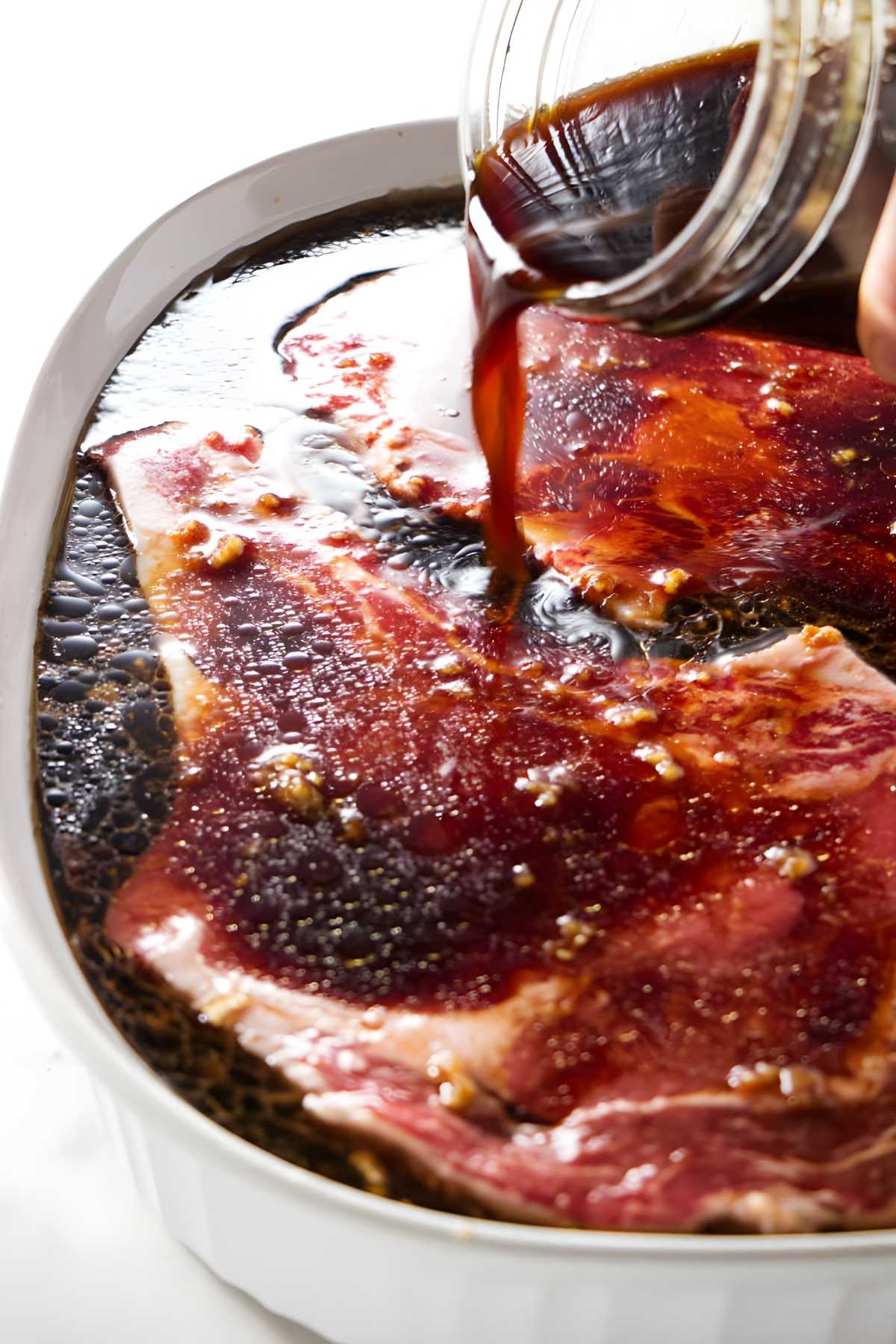
This is a Japanese steakhouse-inspired recipe. Try it on grilled ribeye or grilled chicken breast.
Here’s Why This Marinade Recipe Works
Balanced flavor: Soy, sake, and sugar hit those savory-sweet notes without steamrolling your protein.
Ginger + garlic magic: Bold, sharp, and unmistakably Japanese. These two ingredients bring the heat and the depth.
Works with anything: Chicken, beef, shrimp, fish, this marinade doesn’t play favorites.
Make-ahead friendly: Mix it in minutes, stash it in the fridge, and let the flavors deepen all week.
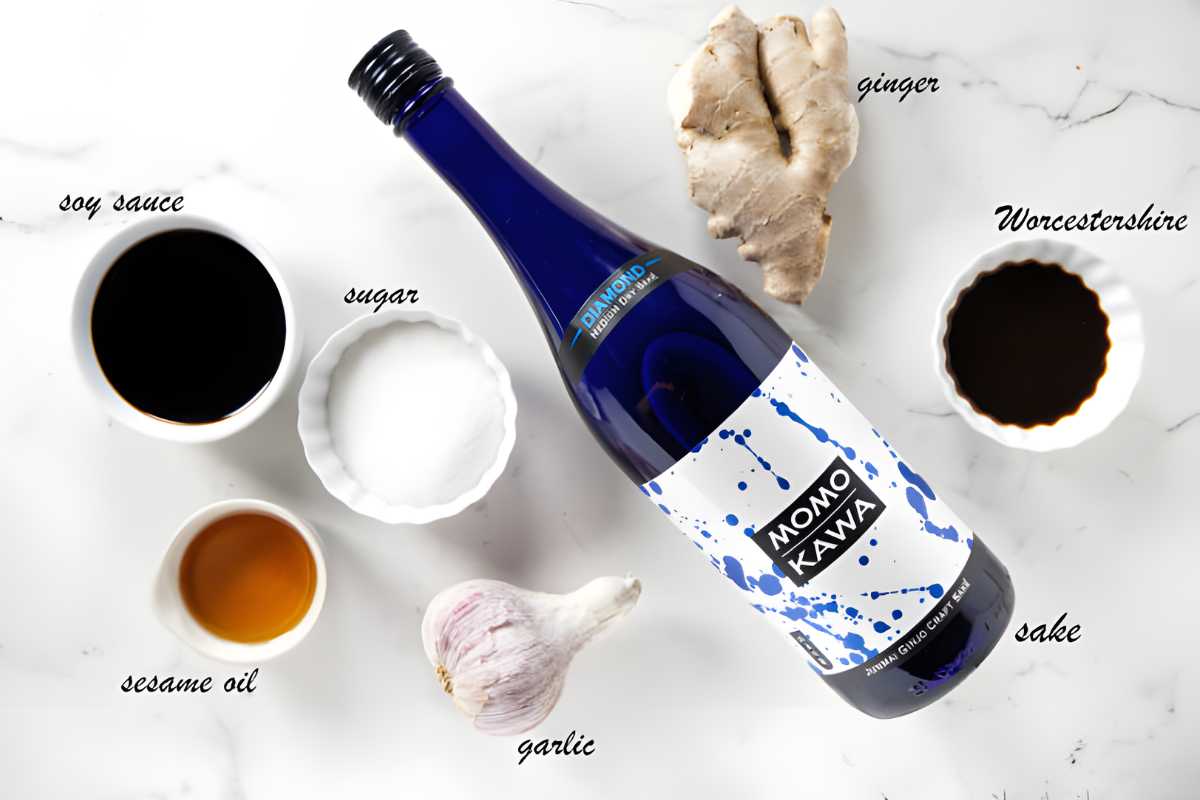
Recipe Tips
Use fresh aromatics: Skip the powdered stuff—fresh ginger and garlic pack way more punch.
Dissolve the sugar: Stir until it’s fully melted so every bite gets balanced flavor.
Watch the clock: Delicate proteins like shrimp and fish go mushy if they sit too long. Set a timer and don’t wing it.
Choose the right container: Stick with glass or stainless steel. Acidic ingredients react with aluminum and create “off” flavors.
Try this on my recipe for beef tenderloin with compound butter or use it in my oven roasted chicken thighs.
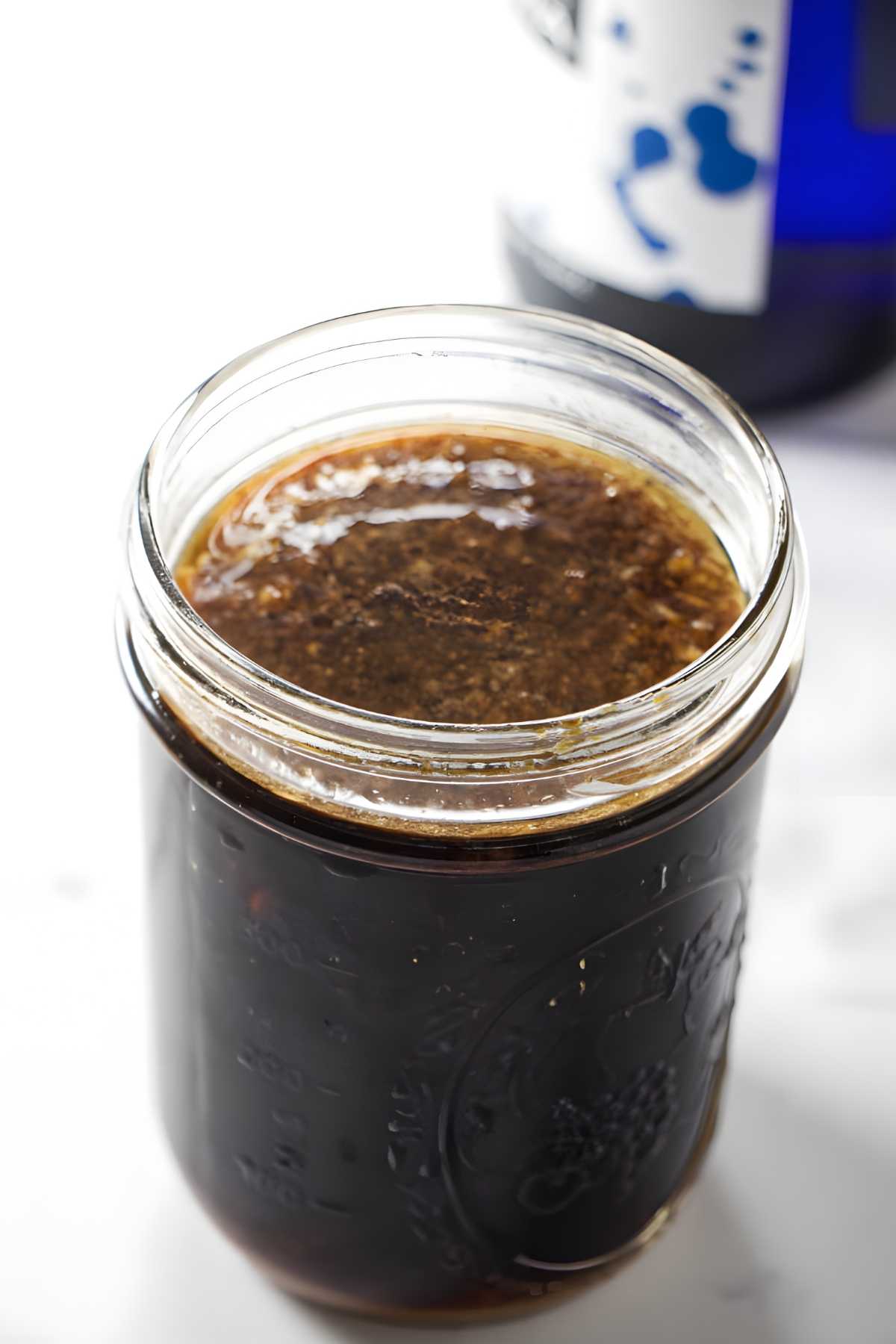
Big Flavor, Minimal Effort
This Japanese marinade is your fast track to bold, balanced flavor, no fuss, no filler. It’s punchy, practical, and flexible enough to level up whatever hits your menu this week.
Pin this now to find it later!
Pin It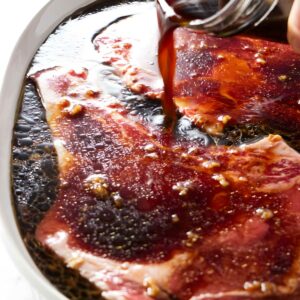
Japanese Marinade
If you make this recipe, please leave a star rating and comment.
Ingredients
- ½ cup sake
- ⅓ cup soy sauce
- 3 tablespoons toasted sesame oil
- 2 tablespoons granulated sugar
- 2 tablespoons Worcestershire
- 1 tablespoon grated fresh ginger
- 2-3 garlic cloves, finely chopped
Instructions
- Combine all the ingredients in a dish and stir until the sugar dissolves.
- Use immediately or store in the refrigerator for 7 to 10 days.
Notes
Marinating Times
- Marinate beef, pork, or lamb for 1 to 24 hours.
- Marinate chicken for 1 to 10 hours.
- Marinate shrimp for 15 to 30 minutes and flaky fish for 20 to 60 minutes.
Nutrition
Nutrition information is automatically calculated, so should only be used as an approximation.
 Like this recipe? Rate & comment below!
Like this recipe? Rate & comment below!
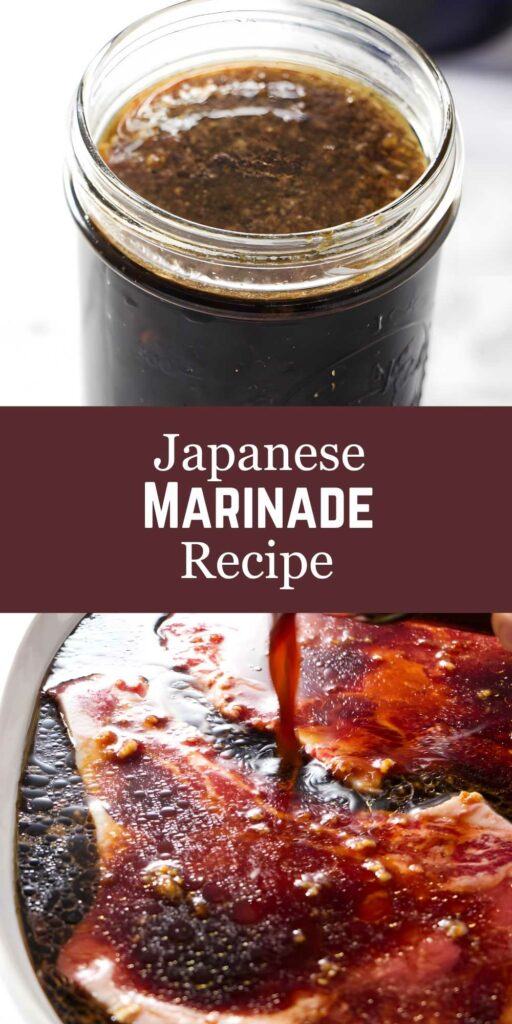

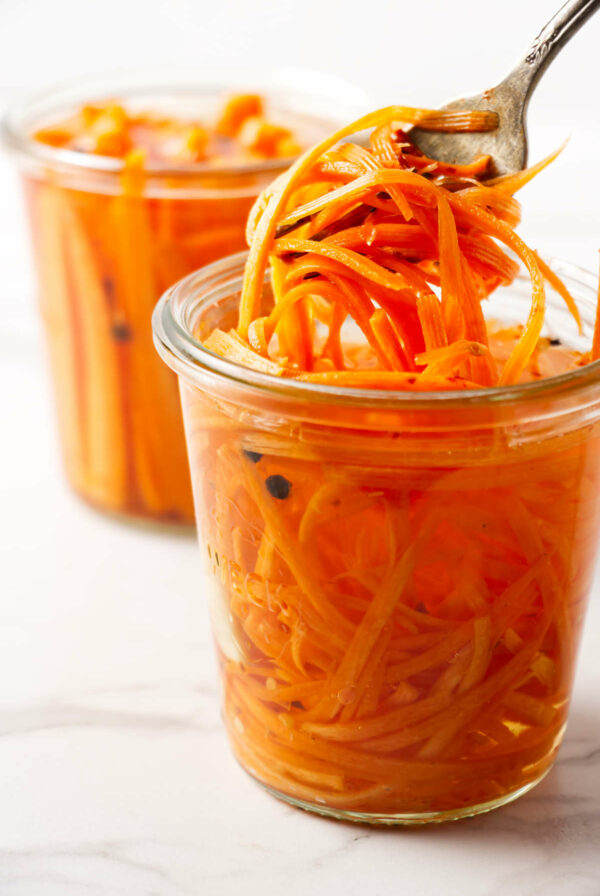
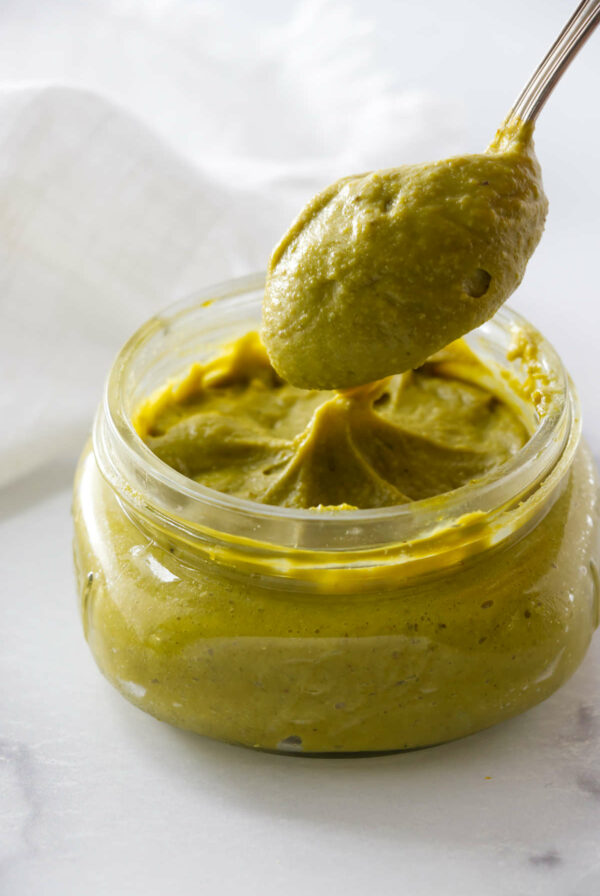











I didn’t have some ingredients but followed the base idea of ginger, shoyu and sake (which I had to substitute for dry vermouth) and it was amazing! Looking forward to make it again soon
Thank you for trying the recipe and sharing your experience!
Would be GREAT to use in cod and salmon!